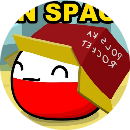III. Complete this table
|
V-infinitive |
Past tense |
Meaning |
V-infinitive |
Past tense |
Meaning |
|
- go |
|
|
- send |
|
|
|
- work |
|
|
- speak |
|
|
|
- repair |
|
|
- make |
|
|
|
- swim |
|
|
- invite |
|
|
|
- run |
|
|
- introduce |
|
|
|
- receive |
|
|
- drink |
|
|
|
- dislike |
|
|
- draw |
|
|
|
- watch |
|
|
- play |
|
|
|
- show |
|
|
- learn |
|
|
|
- write |
|
|
- study |
|
|
|
- buy |
|
|
- do |
|
|
|
- have |
|
|
- compete |
|
|
|
- visit |
|
|
- sing |
|
|
|
- give |
|
|
- take |
|
|




























